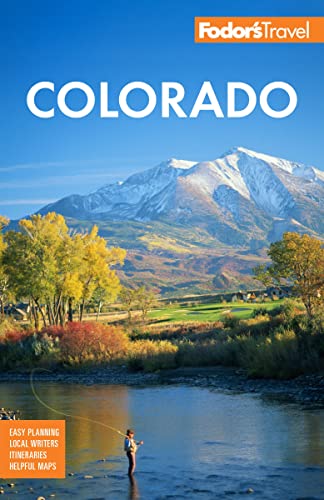Safety
Although Colorado is considered to be generally safe, travelers should take ordinary precautions—unfortunate incidents can happen anywhere. At your hotel, lock your valuables either in the hotel's safe or in the safe in your room, if one is available. Be aware of your surroundings, and keep your wallet and passport in a buttoned pocket, or keep your handbag in front of you where you can see it. At night, avoid dimly lighted areas as well as those where there are few people. Consider a taxi ride to your hotel if it is a long walk or you are alone.
Regardless of the outdoor activity or your level of skill, safety must come first. When hiking or taking part in any other outdoor activity, it's best (and often more fun) to go in pairs or small groups. If you do hike, cycle, kayak, or backcountry ski alone, it is essential that you tell someone where you are going and when you plan to return, whether it's a park ranger or the host of your B&B. Let them know, of course, when you've returned safely.
Many trails are at high altitudes, where oxygen is scarce. They're also frequently desolate. Hikers and bikers should carry emergency supplies in their backpacks. Proper equipment includes a flashlight, a compass, waterproof matches, a first-aid kit, a knife, a space blanket, and a light plastic tarp for shelter. Backcountry skiers should add a repair kit, a blanket, avalanche equipment including a beacon and probe, and a lightweight shovel to their lists. Always bring extra food and a canteen of water, as dehydration is a real danger at high altitudes. Never drink from streams or lakes, unless you boil the water first or purify it with tablets. Giardia, an intestinal parasite, may be present.
When in any park, give all animals their space. If you want to take a photograph, use a long lens rather than a long sneak to approach closely. Approaching an animal can cause stress and affect its ability to survive the sometimes brutal climate. In all cases, remember that animals have the right-of-way; this is their home, you are the visitor.
COVID-19
COVID-19 brought all travel to a virtual standstill in 2020, and interruptions to travel have continued into 2021. Although the illness is mild in most people, some experience severe and even life-threatening complications. Once travel started up again, albeit slowly and cautiously, travelers were asked to be particularly careful about hygiene and to avoid any unnecessary travel, especially if they are sick.
Older adults, especially those over 65, have a greater chance of having severe complications from COVID-19. The same is true for people with weaker immune systems or those living with some types of medical conditions, including diabetes, asthma, heart disease, cancer, HIV/AIDS, kidney disease, and liver disease.
Starting two weeks before a trip, anyone planning to travel should be on the lookout for some of the following symptoms: cough, fever, chills, trouble breathing, muscle pain, sore throat, new loss of smell or taste. If you experience any of these symptoms, you should not travel at all.
And to protect yourself during travel, do your best to avoid contact with people showing symptoms. Wash your hands often with soap and water. Limit your time in public places, and, when you are out and about, wear a face mask that covers your nose and mouth. Indeed, a mask may be required in some places, such as on an airplane or in a confined space like a theater, where you share the space with a lot of people.
You may wish to bring extra supplies, such as disinfecting wipes, hand sanitizer (12-ounce bottles were allowed in carry-on luggage at this writing), and a first-aid kit with a thermometer.
Given how abruptly travel was curtailed in March 2020, it is wise to consider protecting yourself by purchasing a travel insurance policy that will reimburse you for any cancellation costs related to COVID-19. Not all travel insurance policies protect against pandemic-related cancellations, so always read the fine print.




